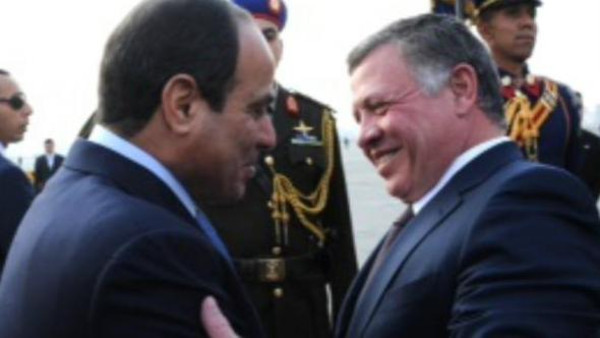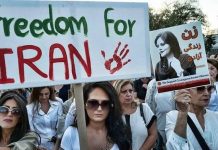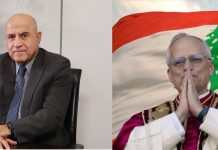Saluting Tunisia’s human shield
Diana Moukalled/Al Arabiya/Wednesday, 8 July 2015
Seifeddine Rezgui killed dozens of tourists on a beach in Sousse, Tunisia, before trying to escape and being shot dead by security forces. Last summer, Israeli helicopters killed four Palestinian children as they played on a beach in Gaza. Cameras documented their innocent play as well as their tragic deaths. The Islamic State of Iraq and Syria (ISIS) carried out a horrific mass execution on a Libyan beach. Beaches, which should be beautiful and friendly places, have become scenes of terror. The death of any innocent must be condemned and rejected, but why do certain cases receive more attention than others? Factors include the location, the victims’ nationalities, and media access.Videos showed a human shield formed by Tunisian men and women around tourists. These men and women must be remembered as a light amid the darkness. However, the Sousse attack garnered more interest because it was documented by survivors’ smartphones, so there was information, footage and emotional narration of what happened. All this helped deliver different journalistic material.
Rezgui was a fan of music and football, but adopted an extremist ideology. His biography, and the photo of him in shorts on the beach carrying a machinegun shows how ambiguous the line is between what we assume is an ordinary man and an extremist. However, the location – a beach – elevated the status of the tragedy. Several videos documented the massacre, so it would have been difficult for the media to ignore them and not provide expanded coverage. The Sousse attack was distinguished by videos of Tunisians trying to protect fleeing tourists and deter Rezgui. What happened in Sousse stirs anger and grief, but videos showed a human shield formed by Tunisian men and women around tourists. These men and women must be remembered as a light amid the darkness, a light that will keep our beaches beautiful and wash away memories of horror, which hopefully will become part of the past.
Erdoğan and Egypt
Ali Ibrahim/Asharq Al Awsat/Wednesday, 8 Jul, 2015
Relations between Egypt and Turkey have never been easy since the Ottoman army entered Cairo and hung up the body of the Mamluk Sultan Tuman bay II at the city gate for three days in the wake of fierce battles that killed around 50,000 people and turned Egypt into an Ottoman province waiting for any opportunity to rise up against Constantinople. The early part of the 20th century has witnessed the collapse of the Ottoman Empire and the Arab Revolt which basically erupted against Ottoman rule in the Levant. After Mustafa Kemal Atatürk modernized Turkey, rules of the game changed and Ankara, for several reasons, kept aloof from the Arab world, focusing instead on the EU. This remained the case until the Justice and Development Party (AKP) rose to power and its leader Recep Tayyip Erdoğan struck up a friendship with the Syrian regime in Damascus that opened the doors of the Arab world to Ankara. Egypt has had no major contact with modern Turkey and it has been keen to maintain its ties with Ankara friendly. This became evident when former Egyptian President Hosni Mubarak mediated between Ankara and Damascus to contain what seemed to be a military escalation over the Kurdistan Workers’ Party (PKK) leader who ended up arrested.
This remained the case until the Muslim Brotherhood rose to power in Egypt. A rapprochement took place between the two countries due to similarities in the ideology of the AKP and Egypt’s new rulers. Nevertheless, there were also differences and they emerged on several occasions over their stances towards secularism. However, the real confrontation took place after the June 30 revolution that toppled the Brotherhood, with Erdoğan seizing every opportunity to issue firebrand remarks against Egypt. On the public level, there was, and remains to be, an admiration of the economic success Turkey has achieved over the past years. However, this has not prevented the public from voicing its anger at Erdoğan’s statements which are considered to amount to interference in the affairs of a sovereign country.
It is natural that Turkey’s ruling AKP has reacted negatively to the defeat of their Brotherhood ally. However, it is completely unacceptable for Erdoğan to continue his anti-Egypt rhetoric even after it became evident that the Brotherhood’s rule was irrevocably gone. Instead, an official as senior as the Turkish president should have responded to the developments in Egypt with some degree of diplomacy. Moreover, Ankara has been supporting a host of TV channels and other media platforms that instigate against Cairo at a time when terrorist groups have stepped up their attacks against Egypt. Bizarrely enough, there is no logical explanation for Erdoğan’s antagonism of Cairo as it would be in Ankara’s best interests to maintain good terms with Egypt, a major power and a pillar of instability in the region.
Many questions hover over Turkey’s foreign policy and whether it aims to create instability in the region and its neighboring countries, including Egypt.
Could an unlikely triangle alliance face Sinai militants?
Yossi Mekelberg/Al Arabiya/Wednesday, 8 July 2015
If proof was required the that the threat of ISIS militancy is not confined to Syria and Iraq, events last week in Kuwait, Tunisia and the latest bloodshed in the Sinai Peninsula provided ample such evidence. The emergence of the so called Islamic State Sinai Province opened another front in combating one of the most violent expressions of radical Islam the region has ever faced. The Sinai Peninsula which for decades, since a peace agreement between Egypt and Israel was signed in 1979, had been a peaceful demilitarised thinly populated territory, became a war zone against modern jihadists. The coordinated attack by militants of ISIS last Wednesday on fifteen Egyptian army and police positions, as well as the three suicide bombings was in clear defiance of the Egyptian state’s authority in the peninsula. Seventeen Egyptian soldiers and officers were killed in the assault, prompting a swift response by the Egyptian government. Nevertheless, the proximity to Israel and Gaza also presents massive challenges and opportunities to the rule of the Hamas in the Gaza Strip and to Israeli security. Militancy in the Sinai cannot be separated from events in Egypt where there are frequent terrorist attacks by militant groups
Lawlessness in the Sinai Peninsula is not an entirely new. Considering the decades-long neglect and discrimination of the indigenous Bedouin people living there and its geographical remoteness from the power centre in Cairo, it is not surprising that it became a breeding ground for extremism. In the four years of turmoil that Egypt has endured since the Tahrir Square days of 2011, the Egyptian security forces concentrated on events closer to main centres of population, especially Cairo and Alexandria. This left the Sinai desert wide open for the local Bedouins and jihadists to confront the Egyptian government in the more remote peninsula. The power vacuum created by a combination of the territory’s vastness, scarce population, distance from the Egyptian centre of power, and its low priority on the Egyptian agenda, together with immense strategic importance, was bound to draw in non-state radical movements.
Militancy in the Sinai
Militancy in the Sinai cannot be separated from events in Egypt where there are frequent terrorist attacks by militant groups, and the in my opinion the crushing of the opposition and human rights in the country by the government led by President Sisi. The main opposition, the Muslim Brotherhood, may have suffered operationally, but this seems, nevertheless, to galvanise their determination and ideology. Sentencing hundreds of Muslim Brotherhood members to death, including the Brotherhood’s Grand Mufti Mohammad Badie and former President Mohammad Mursi, indicates the current unbridgeable rift in the gap within the Egyptian society. The organisation that carried out the attacks in northern Sinai last week, Ansar Bayt al-Maqdis (ABM), pledged its allegiance to ISIS in November last year. It is regarded at present as the most active and dangerous terrorist group in Egypt. The vicious cycle of Islamist militancy and government abuse of human rights and due legal process feed on one another. Hundreds of security personnel have been killed by Islamists in recent years, and the assassination of top prosecutor Hisham Barakat, in a Cairo car bombing a day before the attacks in Sheikh Zuweid was a clear assault on the legal system in Egypt.
The powerful military response by air force and ground troops, which killed more than 100 militants, demonstrates the Egyptian government’s shock and anger. Not surprisingly, one of the major sources of support of these actions came from the decision makers in Israel. In addition to sending his country’s condolences to the government and people of Egypt “…for the fallen Egyptians slain by IS[IS] terror.” Prime Minister Netanyahu also linked the incident to his view about the global war on militant Islam. In his typical over simplistic and alarmist manner, he bundled together events in the Sinai with Syria and Iraq, as well as the role of the Hamas and Iran in the region.
Complexity of militancy
Regardless of this superficial understanding of the complexity of militancy in the region, developments in the bordering peninsula are understandably of grave concern to Israel. ISIS for Sinai Province took responsibility on Friday for the firing of two Grad rockets that landed inside the Israeli Negev region. This was the first incident of this kind. As efforts are made to prevent another round of hostilities with the Hamas in Gaza, opening a new front from the Sinai is an unwelcome new scenario for Israel. The country has built a rather sophisticated electric fence along the border with Egypt to prevent infiltration of either militants or African asylum seekers. Cooperating with the Egyptian security forces provides another pillar in securing the Israeli southern border.
In response to the new realities in the Sinai, Israel has withdrawn its demands that Egypt would abide by its commitment in the Camp David Accords to maintain the peninsula demilitarised. In fact Israel is encouraging the government in Cairo to send more troops in order to contain jihadists there. For the first time in 40 years, the Egyptian air force carried out strikes in Sinai, and this time with Israel’s blessing. The appearance of ISIS affiliated militants, brought Egypt and Israel closer together, more so than any other point in the past.
The convergence of the strategies of Cairo and Jerusalem regarding the threat posed to them by developments in the Sinai is only to be expected. Hamas’s approach is, however, somewhat more complex and the situation over the border presents the organisation with a real dilemma. Its obvious allegiance is with those who oppose and even resist militarily the current governments in Egypt and the Jewish state. Nevertheless, wider regional interests mitigate this support. Israeli sources claim that the military wing of the Hamas is assisting ISIS Sinai Province with organisation and armaments. It allegedly smuggles militants from Sinai into Gaza Strip hospitals for medical treatment. In addition there is understanding among the Hamas political leadership that an organisation such an ISIS is also a threat to them, and given the dire conditions in Gaza they might end up creating a monster that would come to haunt them as well. Yet, in the short term some sort of collaboration with ISIS in the Sinai, is quite a tempting proposition in an effort to break the blockade on Gaza.
New circumstances create new opportunities and new threats induce new alliances. The potential triangle of Egypt, Israel and the Hamas to confront ISIS in the Sinai is an uneasy one. It requires psychological as much as political acceptance that the danger posed by ISIS overrides other enmities. Surely the three sides, considering what we have witnessed elsewhere in the region, must understand that confronting anything resembling ISIS should take first priority.






















